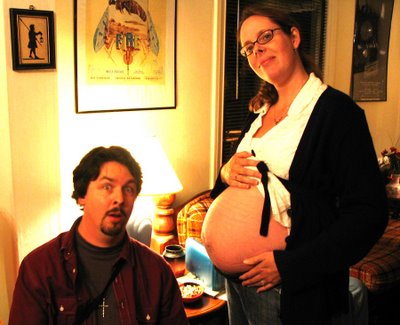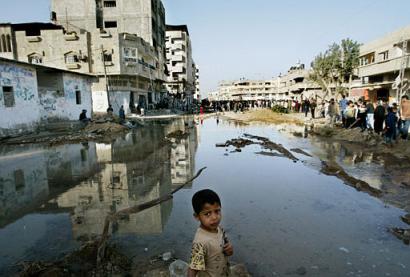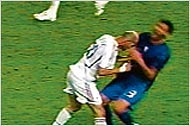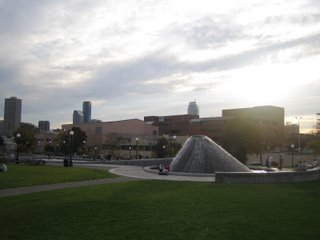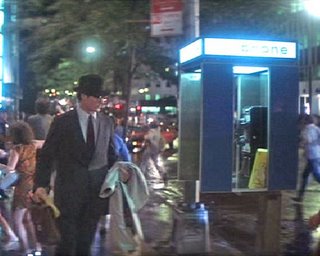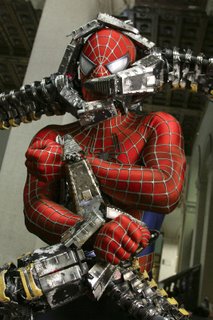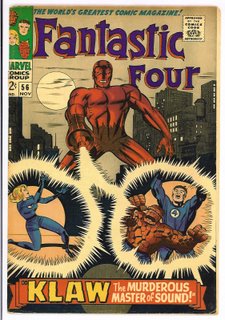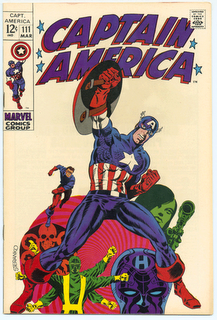
Go to Venezuela, You Idiot!
by Jeff Cohen
I don't usually take the advice of rightwingers. But I did this time. After receiving inflamed email messages from dozens of angry rightists that I should get the hell out of the USA and go to Venezuela, I accepted their challenge and flew to Caracas.
"Would you like me to start a fund to ship your ass down there, Comrade Cohen?" What had provoked the often-abusive emailers was my 2005 Internet column urging U.S. residents to buy their gasoline at Citgo, a subsidiary of Venezuela's state oil company. I called for a Citgo BUY-cott, to protest Bush's interventionist foreign policy while supporting innovative anti-poverty programs in Venezuela. (Last winter, Citgo started a program that provided discounted home-heating oil to low-income families in the U.S.)
"Hey moron, if you hate America so much and love Venezuela, why don't you go there?" I'm glad I listened to the conservative chorus. In late June, I headed to Venezuela with a fact-finding delegation sponsored by the respected U.S. human rights group, Witness for Peace. The grueling trip covered much ground and all sides of Venezuela's social/political landscape. It is a complex country, headed by sometimes volatile President Hugo Chavez, a leftist and harsh Bush critic who was first elected in 1998.
As soon as I returned home, I headed to the nearest Citgo to fill up my tank -- more committed than ever to send a few dollars toward Venezuela's poor.
"You, sir, are as un-American as they come." For decades, Venezuela's vast oil wealth had been squandered and hoarded by its light-skinned elite, while most Venezuelans -- largely of indigenous, African and mixed descent -- lived in dire poverty. Today, oil revenue from Citgo and elsewhere is funneled into social programs (called "missions") to benefit the country's poor majority. They're reminiscent of FDR's New Deal programs. . .born of our economic bust. But Venezuela's missions are fueled by a boom -- a boom in oil prices that is likely to persist for years.
"Because of Chavez, communism is thriving in South America." From what I could see, capitalism is thriving. Foreign oil interests continue to profit handsomely from Venezuelan petrol, but they now pay a fairer share of taxes and royalties. So do the 80 McDonald's restaurants in Venezuela, which were briefly shut down last year over alleged tax cheating.
Multinational companies and the old elite are doing fine in today's Venezuela. So well that some Venezuelan leftists denounce Chavez -- despite his talk of building "21st century socialism" -- as a tool of corporate imperialism.
Like other oil-exporting countries, Venezuela in the past allowed its domestic productive economy to atrophy. Besides oil, it produced little -- with food largely imported. Today, people in poor areas are organizing themselves into productive and agricultural co-ops, supported by low-interest government loans. We visited a federal bank that underwrites women-run businesses nationwide.
My guess is that if Chavez succeeds in Venezuela -- a big "if" in a country of endemic corruption, poverty and crime, in the backyard of the U.S. superpower -- its economic system will end up looking more like Sweden than Cuba.
What's not debatable is that the poor have found hope in the Chavez administration -- which is why he's perhaps the most popular president in our hemisphere. So popular that Chavez critics in the U.S. government and Venezuelan opposition concede that they won't be able to defeat him in December when he seeks reelection.
"
The trouble with all you liberals is that you're anti-American and hate democracy." Participation in democracy is booming in Venezuela under Chavez. That's partly due to polarization, but also because so many poor people feel empowered enough for the first time to get active in politics. A massive 2005 Latinobarometro poll conducted in 18 Latin American countries showed that Venezuelans are among the top in preference for democracy over all other forms of government, in satisfaction with how their democracy is functioning, and in belief that their country is "totally democratic."
"The oil money never gets to the poor. . . . You must have been paid by Chavez to write what you wrote." Across Venezuela, it's hard to miss the new investment in public education. Schools are being upgraded in urban and rural areas and are required to offer free breakfasts and lunches, arts, music and after-school activities. Unlike the U.S., these are well-funded mandates. Illiteracy has been virtually wiped out, according to UNESCO, thanks to adult education that has penetrated the poorest neighborhoods.
In poor communities, federally-subsidized stores called "mercals" sell food at half the market price. In the capital of Caracas, thousands of government-funded soup kitchens offer free lunches every weekday to the indigent; our delegation was headquartered in a church that served 150 free lunches per day. Across the country, new housing is being built to replace shantytown "ranchos" that so many Venezuelans live in.
Thousands of free ("Barrio Adentro") medical clinics have been built inside neighborhoods that never had doctors before -- so many clinics that you can spot them from the highway. These are staffed largely by doctors from Cuba; in return, Cuba receives Venezuelan oil. When we asked a community leader how local residents reacted to the Cuban doctors, he explained that most Venezuelan doctors won't serve in poor barrios: "People in our community don't care whether the doctors are French, German, Canadian, Mexican or Cuban -- as long as they're here to help."
"Go to Venezuela and kiss up to the anti-American dictator." If Venezuela is a dictatorship, it must be the first in world history in which the opposition controls most of the media. And the first in which demonstrations occur regularly outside the presidential palace (organized by various groups, especially low-income activists complaining about broken promises and government inefficiency).
Dissent is alive and well in Venezuela. Any casual viewer can see anti-Chavez criticism all over TV, the country's dominant medium and largely in the hands of conservative business interests. The opposition used its power on TV to support a short-lived military coup in 2002 (strike 1), an employers' oil lockout in 2002-3 (strike 2) and a failed recall election in 2004 (strike 3). Chavez won nearly 60% in the recall vote -- which was monitored closely by international observers.
Efforts to bring down Chavez -- through democratic and undemocratic means -- have been supported by the Bush administration. Which makes it ironic that the American Family Association, a U.S. religious ultra-right group, has organized a Citgo boycott on the basis of its Internet hoax: "Venezuela Dictator Vows to Bring Down U.S. Government." The headline tends to reverse reality; Chavez has made no such vow. But AFA true believers have targeted my email inbox for months with the hoax.
"Try Jesus. If you don't like Him, the devil will always take you back.. . . .What terrorist group are you affiliated with?" If you think the U.S. is politically polarized, you haven't been to Venezuela. Clinton's impeachment by the religious right over sex is child's play compared to what's gone on in Venezuela, where Chavez has survived near-death experiences at the hands of a conservative opposition that has never accepted his presidency.
Columnist Paul Krugman talks of a "New Class War" in our country. In Venezuela, it's old-fashioned class war. Political and media confrontation between Chavez and the opposition is vicious, personal and bare-knuckled. While independent human rights monitors in Venezuela complain about isolated cases of government intimidation of opposition figures and journalists, they scoff at claims that democracy is in jeopardy or that dictatorship is coming.
Today, Chavez is popular (his approval ratings dwarf Bush's), rambunctious in whipping up his base against both domestic opponents and Bush, and prone to hyperbole in his hours of extemporaneous speaking each day. He has waged a war of words against U.S. Empire and Bush, whom he calls "Mr. Danger." But that's polite in light of Secretary of Defense Rumsfeld having compared Chavez to Adolph Hitler. Or Rev. Pat Robertson having called for Chavez to be assassinated.
"You can write your articles about how great he [Chavez] is, but I know, as well as other true Americans, that he is not a good man and he does need to be taken out of power as soon as possible." To me, the issue is less about Chavez than about the social initiatives his government has unleashed. When I first wrote about Venezuela 14 months ago, I urged a simple economic action: filling up at Citgo so that our money at the pump helps Venezuela's poor instead of Middle East oiligarchs. That remains a good idea.
Nowadays, I also urge political action: that we contact Congress to demand that the U.S. stay out of Venezuela's political contest. That's up to Venezuelans to decide. Not us. The U.S. should stop its efforts to back the conservative opposition and cease all ("National Endowment for Democracy") funding of Venezuelan groups.
And finally, I want to join my rightwing critics in one recommendation: Go to Venezuela. If you can arrange it, examine the social transformations for yourself. Study Spanish there. See the decades of poverty, neglect and corruption that led to the election of Hugo Chavez -- and whether his government is improving things.
There's an added bonus for anyone who can get down there: gasoline at 18 cents per gallon. Expect to hear Venezuelans complaining that the price is too high.
Jeff Cohen is a media critic and former TV pundit. His newest book, "Cable News Confidential: My Misadventures in Corporate Media," can be pre-ordered at http://jeffcohen.org/.


